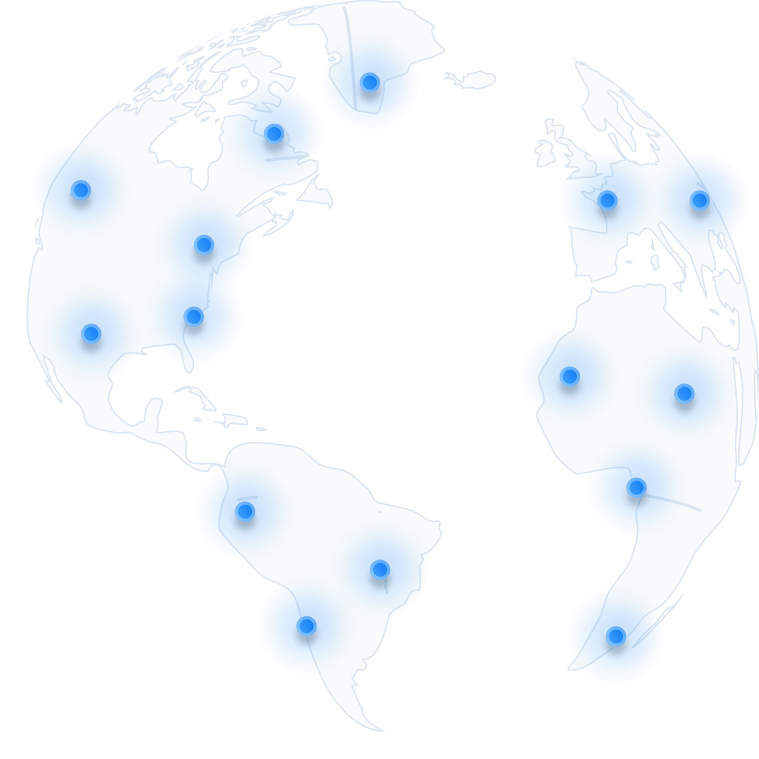
Freight Forwarderin Netherlands
Learn how to grow your freight forwarding business in Netherlands with DF Alliance.
Freight Forwarders in the Netherlands
At the apex of Europe’s trade network, the Netherlands stands as a notable contributor to international commerce and a yardstick for logistical excellence. Anchored by some of the busiest and most advanced ports in Europe, such as the Port of Rotterdam, the nation’s nimble and yielding transportation infrastructure ensures smooth intercontinental freight traffic. With its astute focus on efficiency and innovation, the Netherlands has earned a noteworthy reputation for seamlessly connecting global markets, solidifying its role as a year-round and indispensable partner in the freight forwarding industry.
Across industries, numerous large multinationals and smaller businesses alike appoint Dutch-based freight forwarders to ensure their products are delivered promptly and securely. With its advanced infrastructure as a strong foundation, the Netherlands continues to thrive as a global logistics leader through the application of cutting-edge technologies, promotion of green transportation solutions, and transformation of traditional practices.
Freight Forwarders Industry in the Netherlands
In recent years, the Dutch freight forwarding sector has grown significantly. The total value of the country's market surpassed 10 billion euros back in 2022, representing its importance to global logistics. The largest import partners include Germany, China, and the USA, while top export markets consist of Belgium, France, and the UK. This degree of connectivity ensures high demand for freight forwarders operating in the Netherlands.
What Are the Freight Forwarding Challenges in the Netherlands?
- Infrastructure Congestion: The increase in trade volumes places pressure on major ports and transport hubs, resulting in congestion. This might lead to delays and extra costs for freight forwarders.
- Regulatory Complexity: The regulatory environment is complex, bedevilled by conflicting international trade laws and customs regulations that freight forwarders have to keep pace with due to changes in European trade policy.
- Environmental Regulations: The call for greener logistics solutions dictates that freight forwarders should adapt as quickly as possible to upcoming environmental standards through reinvestment in green methodology and technology in a bid to reduce their carbon footprint.
Best Practices for Freight Forwarders in the Netherlands
- Leverage Digital Solutions: Embracing technology can streamline operations. Utilising advanced software solutions for tracking, inventory management, and communication can enhance efficiency.
- Develop Strong Partnerships: Building strong and strategic relationships with carriers, ports, and other logistics providers can help overcome infrastructure challenges. Collaborative approaches often lead to shared resources and capabilities.
- Stay Informed: Regular updates on regulatory changes are essential. Participating in industry forums and workshops can provide insights into evolving compliance demands and help prepare for upcoming shifts.
How to Become a Freight Forwarder in the Netherlands
What Registration Is Required?
Prospective freight forwarders must register with the Dutch Chamber of Commerce (KvK), this registration is necessary to conduct business legally within the country and ensures that the national trade regulations are complied with.
What Are the Licensing Requirements?
A freight forwarder must obtain the licences corresponding to the offered services. This licence may be different depending on whether a business is involved in sea, air, or land transportation, and, depending on the nature of the goods shipped, even further certifications may be called for, by way of illustration, in case of dangerous materials.
What Are the Compliance and Skill Requirements?
Adherence to customs regulations will be necessary. Importers and exporters often rely on the specialised knowledge of freight forwarders when it comes to the legal aspects of cross-border transactions; key competencies for a freight forwarder include thorough knowledge of international trade laws and logistics management.
Top Ports in the Netherlands
- Port of Rotterdam: It is the largest in Europe and among the leading harbors in the world in sea freight transport of over 400 million tonnes annually.
- Port of Amsterdam: Developes into one of the major supply centres not only for energy products and chemicals but also for other goods.
- Port of Moerdijk: Strategically located between Rotterdam and Antwerp, the port is an important transhipment point for goods to and from almost any destination in Europe.
- Port of Vlissingen: We specialise in car export and breakbulk shipments and have very good multimodal solutions.
- Port of Groningen Seaports: Eemshaven & Delfzijl; these ports focus on energy production and processing, which are key elements in the Dutch economy.
Conclusively, the unique freight forwarder's position in the Netherlands, with the country's infrastructure robust and logistics advanced, makes them indispensable in the world's supply chain. In this regard, understanding how they address major problems facing their regulatory complexity, environmental anxieties, and changing demands of international trade is very instrumental to the further strengthening of their operations.
Taking on industry best practices, making use of cutting-edge technologies, and adhering to both local and international regulations gives them operational ease with which to place the Netherlands in its rightful place as the benchmark for efficiency and innovation in logistics across the globe.
Join the Digital Freight Alliance
Making sure that you have the right insurance coverage is essential for protecting your business from potential risks associated with freight forwarding, such as cargo loss or damage, and liability claims. Ensure that your business is covered with comprehensive insurance policies tailored to the logistics sector- you can discuss insurance with our experts when you Join the Digital Freight Alliance.
Join Membership Today